My Media Story: A Journalist and a Lawyer are Two Sides of the Same Coin – Ayoade Olatokewa, PwC Two-time Winner
Women in journalism, broadcasting and documentary storytelling across Nigeria are hardly celebrated for their collective contribution within the Nigeria Media Space. At LightRay Media, to bridge this gap, we launch the Nigeria Women in Media #NWiM Edition to tell the stories and journeys of these professional Women in Nigeria to inspire and reveal the gaps, challenges, benefits, barriers and more about the media industry they work in Nigeria and how these issues deserve front row seat discussion, amplification and solutions.
Journalism in Nigeria is not for the faint-hearted. It can be both rewarding and even a ‘curse’ as some who have experienced the negative side of the profession will tell you: from being jailed, to poor remuneration, interference from security and intelligence agencies to outright distrust from citizens, the stories of many journalists, broadcasters, and documentary film makers can be both rewarding and a test.
In this Special Edition tagged: Nigeria Women in Media Series – My Story, My Journey, our first guest, Ayoade Olatokewa, the Head of News, Kiss FM 99.9 Abuja, takes us on her journey into the media. It will evoke a nostalgic era in some readers while for young and aspiring campus journos or secondary school leavers wondering if the media and journalism is a space they would like to explore, it will afford them the opportunity to glean deeper insights on what to expect.
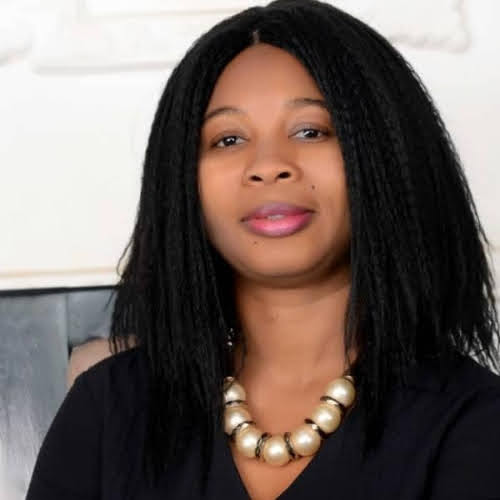
Ayoade Olatokewa: Women should be bold and be professional, and not be looking for affectionate relationships. I have practiced my job for over a decade, and I have never been sexually harassed because what I bring to the table is strictly professional. Look at the people eyeball to eyebal. There is no weaker vessel in journalism, you can’t be a weakling and go far.
When was the first time you knew journalism was going to be your passion and career?
As a young child, I started reading from as early as age five. My dad always bought me literature books, and I think by the age of 3, that was when I knew journalism made an impression on me. I wrote my first poem at the age of 7, and with the help of my uncle, it was published in Prime People and Vintage magazines. By the time I turned 10, I had written up to 5 poems.
My late dad, Taiwo Adeyemo Idakolo, first saw the passion in me, and whenever he went for shareholders’ meetings, he always took me along. Then, when we got home, he would tell me to read the report to him, correcting my diction and pronunciation as I kept reading. I had intended to go into newscasting, not even as a reporter. Despite my passion, I still wrote my poems.
I used to watch Newsline with Ruth Benamasia Opia every Sunday evening and Larry Ichijile. As I grew older, a one-time TV host on NTA, Funmi Iyanda, started her program, the NEW Dawn, in the late 1999 to 2000s. I loved watching the program and kept imagining myself on TV any time I was bored. The desire to read like a newscaster was formed.
Along the line, my dad began to feel journalism wouldn’t be good for me. He was of the belief that journalists do not allow women to keep their homes, and so, he and one of my favourite uncles tried to convince me to study law after I finished my secondary school. They felt I would make a very good lawyer because I was stubborn and could argue a lot. By this time in 1998, Lagos State University was offering diploma in law, so they felt I should start with that while I awaited JAMB result because the admission will be automatic as I am a Lagosian and the head of the faculty of law was a distant relative.
Although the pressure from family was much on me, I declined the offer for three reasons, even if it was going to cost me a lot. My first reason was that I didn’t want to go to LASU. It has since become a family tradition for everyone in my family to attend the university. Secondly, it was too close to my house in Festac Town, where I grew up, because I wanted to have a change of environment, so I chose the University of Ibadan for Communication and Language Arts instead.
Also, due to my limited knowledge on career path growth, I thought lawyers only sentenced people to death based on the assumption I made watching American films while growing up. I told myself I didn’t want to become a lawyer because I believed journalism will be more interesting. I also believed through journalism practice, I will be able to help solve societal problems based on watching Ruth Opia and Abike Dabiri on NEWSLINE. It was at this point I imagined having my own TV magazine program like that of Funmi Iyanda.
As life progressed, I found more interest in journalism at 300-level when I did my six months internship in both television and the print media. My print experience at Post Express Newspapers in Apapa Lagos was boring, but since I loved to challenge myself, I made sure I had at least 2 bylines. Back then, practising journalism in Lagos was hectic. However, my Clapper Board TV experience was more interesting because we always went out for vox-pops. That was when I started to define the aspect of journalism I would go for. After I graduated from school, I was posted to Radio Nigeria, where I was assigned to work in the programs department. From thereon, my boss liked me and I started working with the ‘Lean on Me’ desk. The program was designed to help the less privileged, and it also doubled as a charity. Bridging the gap between the rich and the poor, we helped solve people’s problems. Although I was not placed on salary at the time, I got a referral from my head of programs I served with at radio Nigeria to work at Vision FM 92.1.
That was how my passion for radio journalism started, and till date God has been so faithful.
At what point did you feel your career was no longer just a job you showed up to?
Hmmm, that’s a tough one! That should be in 2017 while working at vision FM, there were some internal politics and I am a very blunt person, I don’t know how to pretend, so I wanted to give up because I felt cheated, but while at the verge of that decision, I got a scholarship at RNTC, and the experience changed my perspective to stick to journalism and move forward.
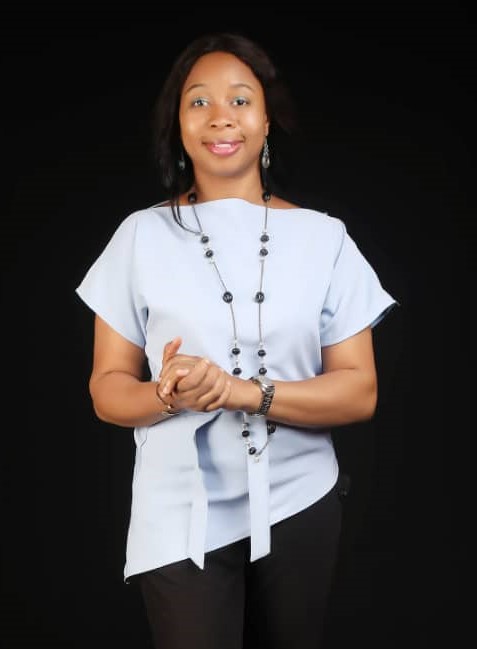
I need to move one step at a time because I am not in competition with anyone. God makes all things beautiful in its own time. I want to make an impact in my own little corner. Fulfilment is not until the whole world announces you.
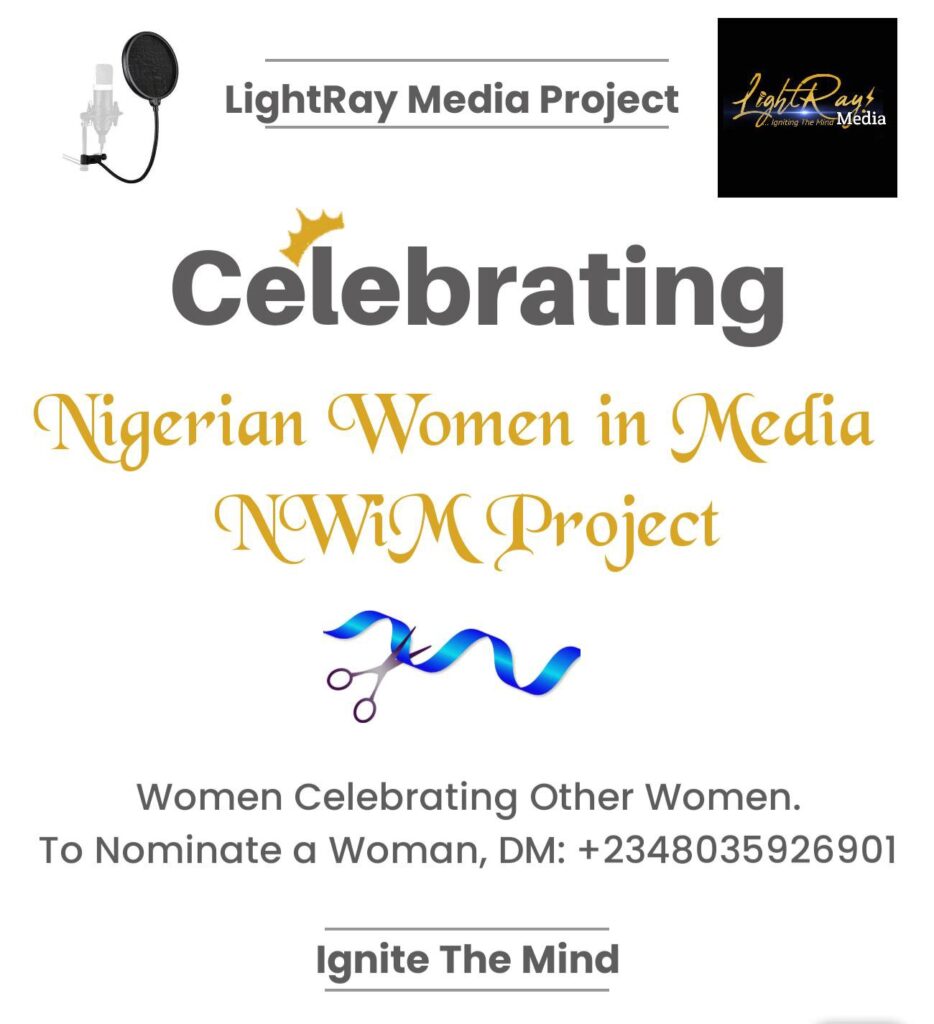
What were some of the struggles for you in the early stages of your career, and how did you overcome them?
(She breathes in). I had some struggles with my family because my siblings believed I wasn’t bringing enough good pay home. So they got me a job at a bank, but after I went for the interview, I declined after I was told I would be working underground in the ‘BULK ROOM’. I felt I won’t be fulfilled. So when my elder brother got to know about this and told my family what I did, they were all disappointed.
As time went by though, they left me alone and accepted who I chose to be and started supporting me. However, as I continued in my journey practicing journalism, it dawned on me that to thrive in journalism you must start with passion and not money.
Do you still have any current challenges you’re trying to overcome?
As long as you live, you will face challenges. Now I am trying to metamorphose into academia as my retirement plan in Journalism. I want to have my PhD because I love teaching and enjoy passing on knowledge. So, I want to start shuttling in between the two for now and when I leave active journalism I can continue with lecturing.
What are some of the barriers you think has prevented you from hitting the career target you’ve set for yourself?
I don’t see any barriers so far, except a few delays because of raising children but am set to recover all.
And how do you plan to overcome them? Why is it important for you to overcome them?
I need to move one step at a time because I am not in competition with anyone. God makes all things beautiful in its own time. I want to make an impact in my own little corner. Fulfilment is not until the whole world announces you. It’s the little you are doing with those under your tutelage and the one God has brought your way. With the help of God, so far, I have almost 10 corps members and interns that keep sending messages of how my life has impacted them positively. Two of them are abroad, and we still connect. How else can I be grateful to God?
What are some of the stories or projects you’ve done that were the most impactful in the course of your career?
(She thinks deep . . .)
I have done a couple but I can’t forget two stinking stories I pursued: one was the rape of a minor in Maraba by the landlord’s teenage son. Even when the parents begged me not to take it up, I did. But I was bitter when afterwards because after all I did, the father of the minor told me not go on air with the story because they have no money to pursue justice or get another shelter. Still, I went ahead and FIDA intervened, despite the threat by the police.
The second was my ‘ROCK BLASTING STORY IN MPAPE COMMUNITY’ report on how illegal miners take advantage of host communities. As a result of my story, when they began reviewing the 2000 mining Acts, the ministry of Mines and steel used some of my reviews while ensuring that the host community was duly compensated by the Chinese construction company. That was the story that gave me a scholarship to travel out of the country.
What career projection are you setting up for yourself you intend to meet up?
I would love to build my career to be a trainer in Solutions Journalism in which I got certification last week. Like I mentioned earlier, I also want to spread my tentacles into researching and lecturing. Learning is for life; we start dying when we stop learning. So I want to follow the world as it evolves.
What training programmes or short courses have you attended, which you applied to the job that made the most impact for you?
I have countless, but may be Solutions Journalism training and investigative reporting by Annan’s Aremya of Tiger Eyes Foundation in Ghana.
What suggestions will you give media owners or heads of media business to help boost morale, effectiveness, and reduce toxicity in the workplace?
I have a lot. Journalism is not like any other profession, so you need a lot of support and understanding from your organisation and boss. The Newsroom should build a relationship that is sustainable to watch each other’s back because it’s a circle. You can’t work alone, that’s why I make my Newsroom interesting, we spend more time with each other than our blood relations.
Media owners should prioritize emotional stability, financial stability, and insurance of staff. With that, you can go all the way to be professional and not compromise in trying to be objective.
If you were to reimagine your career, what would you do differently, starting today?
Maybe be to learn how to make more money from journalism (she smiles).
How and what can women in media begin to do differently and better to hold their own space within the media industry?
Good question: They should be bold and be professional, and not be looking for affectionate relationships. I have practiced for over a decade and I have never been sexually harassed because what I bring to the table is strictly professional. Look at the people eyeball to eyeball, there is no weaker vessel in journalism, you can’t be a weakling and go far.
Female journalists should stop all the flimsy excuses of being under the weather, menstrual cramps, children’s checkups, and the likes to dodge official responsibility all the time.
My newsrooms knows I manage my home and time with the help of God not to give excuse to be absent at work or for excuses to delay stories. I am not saying we should not look at some issues from the gender lens but not all the time.
Critical decisions are made at the executive meetings, and women should strive to be at the top of the ladder to be part of top management rather than stay at the door to serve biscuits and tea. We need to display more of our intelligence and ability than the curves and figure eight that makes men to tell them to compromise for promotion.
Tell us about some of your accomplishments that make you proud of yourself and continue to inspire you to do more?
Hmmm . . . I would say uprightness. Years back, as a young reporter covering the DEFENCE BEAT, most of the female reporters often compromised with the military men, including the married ones.
I was also tried by all the formations, but I never accepted any of the offers. But what I didn’t know at the time was that the military guys were recorded! One day at a chat with the media relations, one of the officers in front of everyone said: “I am proud of this particular female journalist. She has stood out to be so decent and disciplined.” He ended up saying: “Your husband is a lucky man.”
I was shocked and embarrassed. So in a nutshell, I have maintained a record of integrity so far.
Also, most times after my program on TALKING ECONOMY, I always get a lot of feedback from people appreciating my efforts to help Msmes thrive and how my program has been so educative and informative With that, I feel I am making an impact, but I still hope for more.
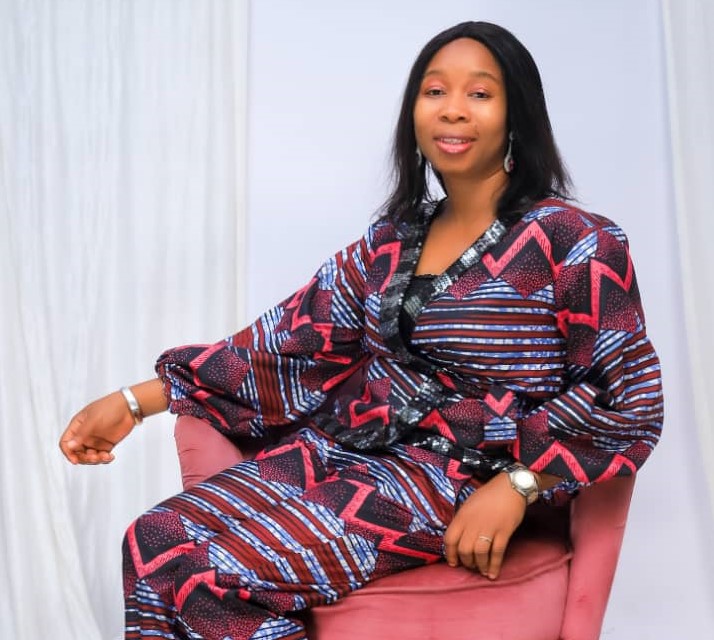
What tips in personal development, career pursuit, network strategies, and wealth creation would you advise other women in media, including men, to tap into?
Journalism, oftentimes, cannot pay your bills in Nigeria. Try to invest and diversify your sources of income. The job is demanding, so you won’t have time for active business, so invest in a passive source of income, look for how to multiply your income, invest and have savings.
How do you balance your personal life, work, and family expectations? Which aspects give you the most challenges, and how were you able to overcome them?
With the help of God I am meeting up. Nobody is a super human but the ability to trust the holy spirit will help you a lot. Also, having a supportive partner and learning to build trust in our relationship. It is not every man that can marry a female journalist, it takes an extraordinary man. They are rare and their type comes once in a century. I am grateful to God for a supportive partner and family.
Also, as a female journalist, humility should be key. Let’s try and change the narrative that female journalists are proud. Your level of knowledge, boldness and exposure is a potential threat to any man, so let’s garnish those qualities with humility.
Tell us something about the media industry you would like to see change for the better? And why is this change important?
We need better remuneration, Insurance, and hazard allowance.
In the next 3-5 years, where do you see yourself?
I pray to have been done with my PHD pursuit and actively involved in lecturing and researching.
What is your current role and responsibilities you handle?
I am the head of News at KISS FM Radio, 99.9 ABUJA. I present a weekly program on the economy called TALKING ECONOMY WITH TOKE. I am a certifed Solutions Journalism trainer (SJN NETWORK), an executive member of the Finance Correspondents Association of Nigeria, a member of Global Broadcasters Forum, African Fact Checkers Association (AFCA), Wana Data Africa, Hack Hackers, a Pulitzer Centre Grantee and Two-time winner of PwC awards on financial reporting and more.
So how do you unwind?
(She gives us the LOL!): Having fun with family, watching movies, reading Christian literature and I also love listening to Christian music and comedy skit????.
Written by ERU.
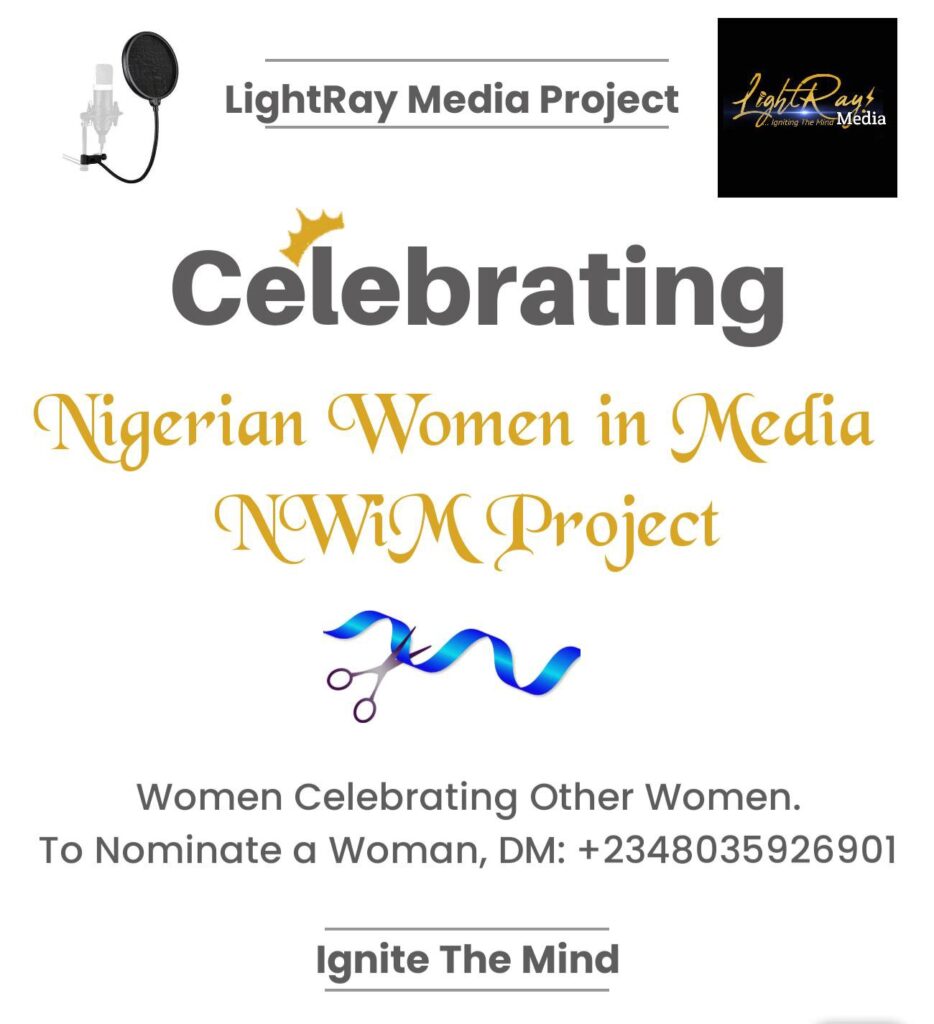





Comments